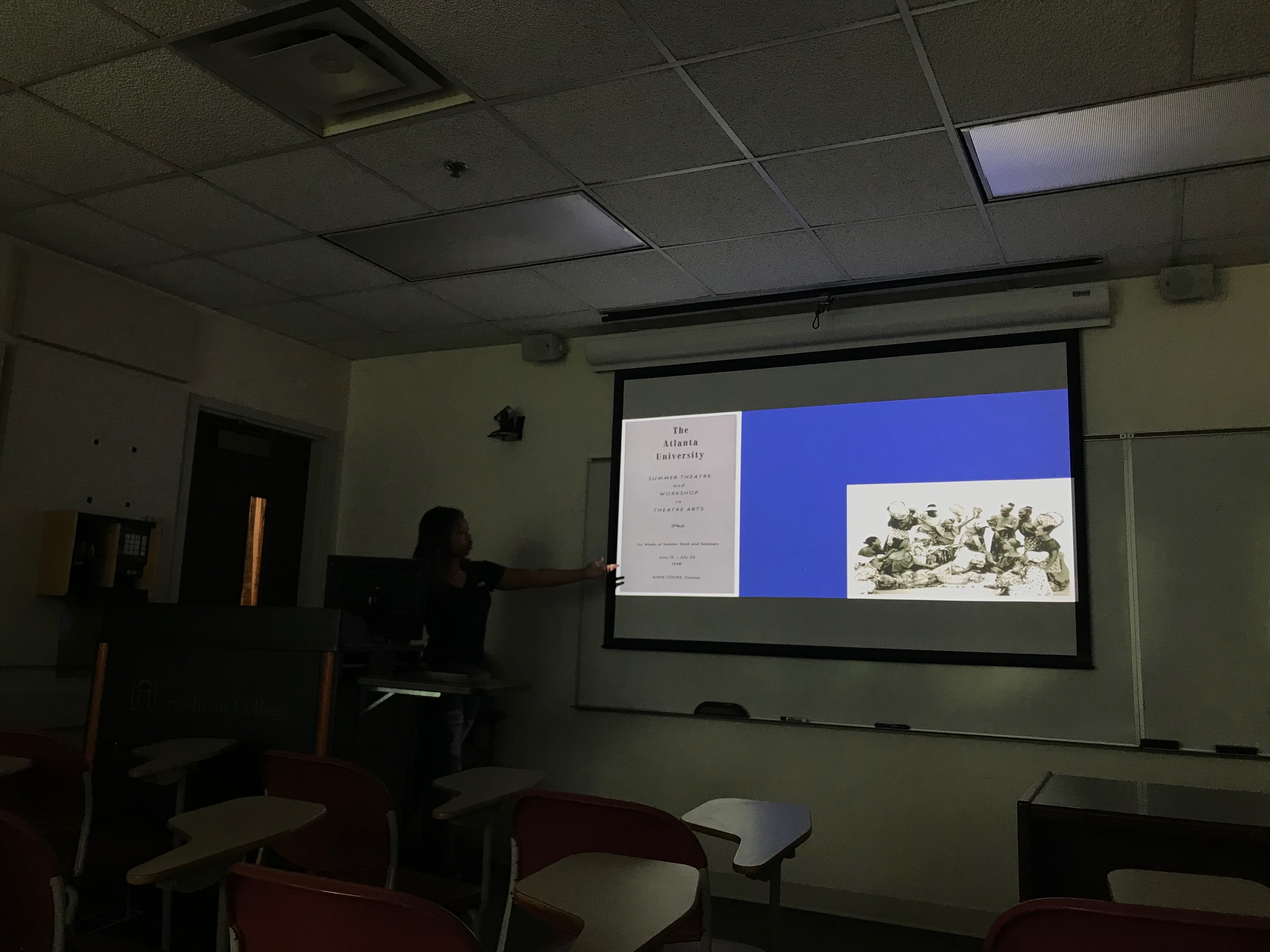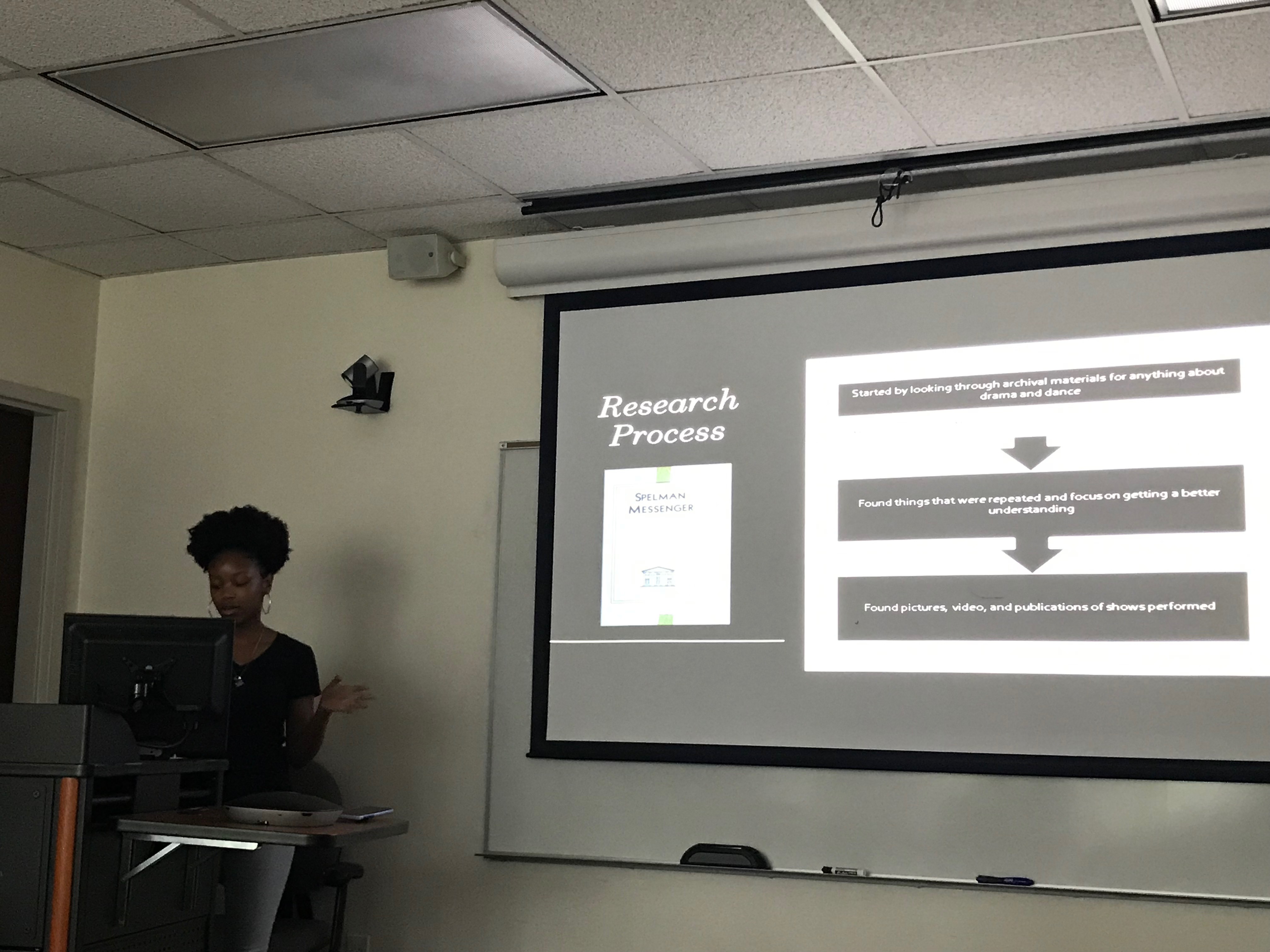Read more about the Leadership Alliance internship program here.

Camille Barnes discusses the items she found in her research
Camille Barnes:
My experience conducting archival research has been such an awarding experience. At the beginning of this journey I did not know a thing about research or how to even conduct research the proper way. Being able to spend my summer in the archives has taught me a lot about the work that goes into researching. I’ve also learned how preserving the work of others is important. Keeping records and files allows researchers to truly dig in and explore in a deeper level. When conducting research one of the tools that you can use to help you narrow down what you’re looking for is a finding aid. While doing my research I used the finding aid a couple of times to help me narrow down for what I was looking for. A big part of my research was looking through collections and personnel files. One of the personnel files I went through was Anne Cooke. Going through her file made me want to fully focus my research on her. Within her file there were handwritten correspondences between her and the president of Spelman during the late 1920’s and early 1930’s. While doing my research on Anne Cooke I did struggle with finding a lot of information about her. I knew that she was impactful and played a significant role during her time at Spelman, there just was not enough physical proof to prove my point. The best thing about doing my research on Anne Cooke was I felt like I was telling her story by finding out things about her and her contributions to Spelman College. While I researched her it felt like her work got taken for granted and she was overlooked, seeing that most black women usually are. Though I was left with very little about her, I took what I had and what I knew to tell a more complete story about Anne Cooke.
Keighla Pope:
My experience conducting archival research has been great. I think that it was a little easier because the topic was so broad. I looked through a lot of material about Spelman’s drama and dance department, then I narrowed down and chose what topic I would focus on. It was cool going through things students and staff wrote. Knowing that the material I looked at were things used by Spelman students since 1920 really made me realize how important archives are and how every school needs an archive. Since this is my first time conducting archival research, this was also my first time using a finding aid. Before using a finding aid I thought that it was really hard and difficult to use. For my specific research topic using the finding aid was not that hard. I learned that you have to play around with what words you decide to use depending on the time period. I also learned that sometimes searching by year can be easier. During my time I feel like I made a very interesting discovery of someone who deserves recognition. Anne Cooke was an English professor who made Spelman’s theatre and dance department what it is today. I believe that without archives and researchers that there would be plenty of things in history that are just forgotten and not appreciated such as Anne Cooke’s legacy. I have really enjoyed my time here in the archives. I have learned so much about Spelman and I hope to one day work in other archives to learn more interesting things.

Keighla Pope discusses her research process


